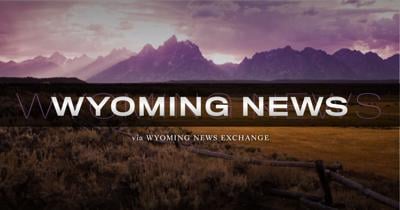CASPER — A federal court has ruled the Bureau of Land Management cannot move forward on a large oil and gas lease sale in Wyoming after concluding the agency did not adequately assess potential risks to groundwater and wildlife, prolonging a yearslong battle over the fate of 120,000 acres of federal land in the Cowboy State.
The ruling also signals a shift toward higher regulatory standards and the growing role of courts in the future of energy politics.
The court’s decision pivoted largely around the issue of groundwater, as the judge decided the BLM’s assessment failed to ensure that underground aquifers were adequately protected from potential wellbore seepage and could have left large sums of Wyoming’s usable water at risk of contamination.
The ruling highlights a core challenge for extraction industries as well as the premium placed on geologic expertise in the world of energy politics.
It hinged on a troubling report which revealed that not all oil and gas wells on federal lands in Wyoming have comprehensive protective “casings,” leaving gaps through which chemicals may escape into pockets of usable underground water.
The court cited as an example the Powder River Basin, where 63 wells have been drilled on federal land since the year 2000 and where research shows that more than half of those wells — 36 — have uncemented gaps in wellbores; many of those gaps cross usable water sources, putting the area’s water security at risk.
“The Bureau of Land Management can’t just say, ‘Don’t worry, we’ll fix it at a later stage.’ Not when there’s evidence in the record that shows they haven’t been fixing it,” said Alexandra Schluntz, senior associate attorney with Earthjustice, one of the plaintiffs in the case.
The currently contested parcels, including those in the Powder River and Green River basins, are located in areas with useable water, and because the BLM’s assessment standards have not changed, researchers believe “if current active federal wells are not adequately cased and cemented, then it can be assumed that a significant portion of future wells installed on these proposed parcels will also be inadequately cased/cemented and thus pose a threat to usable water.”
The district judge agreed.
Additionally, the court said the BLM’s lease plans did not sufficiently account for risks to wildlife, namely sage grouse and mule deer, both of which are negatively impacted by oil and gas development, studies have shown.
The court’s logic reflects a wider concern over the decline of sage grouse, whose traditional range has shrunken at an alarming rate in the last half century, largely as a result of human development.
In one Wyoming planning area, the court noted, its range has contracted by 90%.
Similarly, the decision speaks to a heightened vigilance toward mule deer in Wyoming, where 24 of the state’s 27 herds are failing to meet population objectives — some by as much as 67%, according to the agency’s own findings.
Some parcels, furthermore, are in areas designated as Critical Winter Range, whose importance was thrown into relief following a brutal 2023 winter that drove mass die-offs in herds across the state.
The BLM argued that it had taken wildlife concerns into account in its respective resource management plans.
Though the court acknowledged that the plan provided a useful framework, it was only part of a tiered system of review. The ruling said in the context of these specific leases, the analysis was generic to forecast impacts on animal populations required by law.
“The bureau cannot hang its hat where it never placed a peg,” the judge wrote.
This story was published on March 28, 2024.


















(0) comments
Welcome to the discussion.
Log In
Keep it Clean. Please avoid obscene, vulgar, lewd, racist or sexually-oriented language.
PLEASE TURN OFF YOUR CAPS LOCK.
Don't Threaten. Threats of harming another person will not be tolerated.
Be Truthful. Don't knowingly lie about anyone or anything.
Be Nice. No racism, sexism or any sort of -ism that is degrading to another person.
Be Proactive. Use the 'Report' link on each comment to let us know of abusive posts.
Share with Us. We'd love to hear eyewitness accounts, the history behind an article.